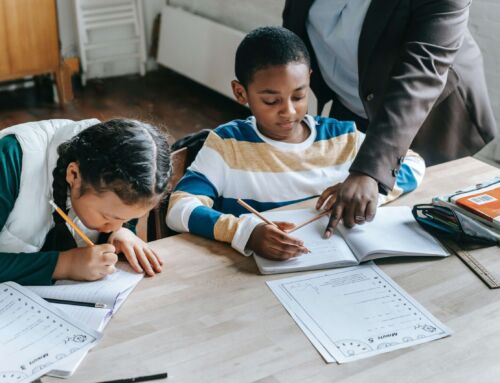Summer Learning Loss: Tips to Help Prevent It & How to Encourage Summer Reading Habits
Summer break is a much-needed hiatus from the hectic school year for parents, students, and teachers alike. Having time to recuperate and enjoy the weather is always important. However, it’s crucial to be aware of the effects of summer learning loss and how to keep students’ skills sharp over the summer. This prevents anxiety or panic for teachers, parents, and students when the school year starts back up. Knowing what to look for and learning tips to avoid summer learning loss, your child’s knowledge can be maintained and even grow during the summer. The first step to tackling summer learning loss is understanding what it is. Learning loss, also known as the “summer slide,” occurs when a lack of practice or repetition leads students to lose knowledge/skills over summer break. This concept has been around for decades and varies from child to child. Students who already have a hard time during the school year can face even more significant difficulties because of the break away from learning. Johns Hopkins University conducted a study that found that around one month of in-school learning is lost over the summer. This amount can increase for children with learning disabilities for up to 3 months, resulting in more reinforcement. It is crucial to encourage students to read for pleasure and find ways to bring out their natural love for learning during their early years. Summer reading is essential to maintaining your child’s skills and progress over the break. Here are a few tips to help your child with dyslexia keep what they learned in school over the summer, and see that reading is both fun and functional:
- Try giving your child reading materials other than standard books. Reading for them can be stressful, so take the stress out of the activity by encouraging reading graphic novels, comics, or audiobooks. Let them have agency when deciding what they want to read.
- Practicing what you preach and modeling persistence can teach your child the value of perseverance when working on something challenging. Model the patience and discipline it takes to read and learn something new.
- Try setting a good example by reading regularly. Bring books with you on trips, take time to read at home, or spend time together listening to audiobooks in the car. Leading by example allows you to make reading a family activity.
- Bring their reading materials along with you. If you’re waiting in line, suggest they read a book you have prepared. Giving them this option shows how reading can be a fun way to pass the time in a boring situation.
- Give them plenty of support as they read. Read to them or along with them and welcome any questions they might have. Try reading their books aloud to them and help them understand the meaning of certain sections.
Helping children with dyslexia discover the fun in reading and other education-related activities in a more laid-back summer setting relieves the pressure of grades and keeping up with classmates. Summer learning loss can be frustrating for everyone involved, but the first step to addressing this problem is to educate people about ways to prevent it.
Summer Tutoring & Programs
A great way to prevent summer learning loss is utilizing a summer tutoring program for your child. Summer school programs help prevent learning loss and create an easier transition back to school. The benefits of summer school for dyslexic kids are numerous, and READ Academy’s Summer Program is an excellent resource for families in the Sacramento area. Summer programs provide specialized attention for dyslexic students, work closely with trained instructors, and can help increase a student’s confidence for the upcoming school year. Find out more about how summer school can benefit your child.
Make At-Home Learning Fun
Dealing with summer learning loss doesn’t mean taking away the fun of summer but finding ways to incorporate education into daily life in a non-stressful way. Not interested in replicating a planned, structured school setting? Try planning out a few educational activities you can sprinkle into your kids’ schedule while allowing plenty of fun and relaxation time. Activities, such as cooking or baking, are a great way to do this. Try having your child read the recipes aloud or measure out the ingredients. This is an easy way to practice reading skills, fractions, or simply comprehending a list of steps to complete. The most important thing to remember is that as a parent, you must be willing to adapt with your child. Some students will be more affected by summer learning loss than others, and figuring out what at-home learning strategies work best for your child depends on many factors. If you know your child is struggling with a particular subject, focus on it over the summer to give them additional practice before the school year. Not every family’s summer vacation is the same, but if parents and children are willing to try, learning can happen anywhere!




